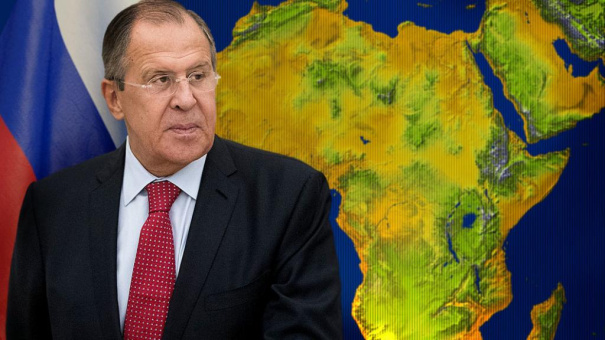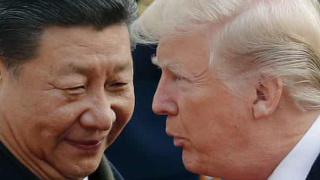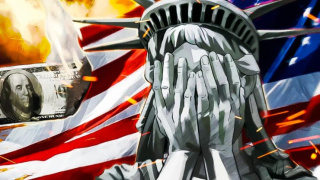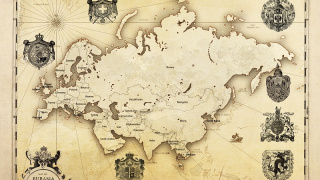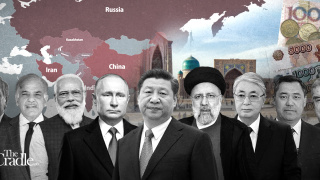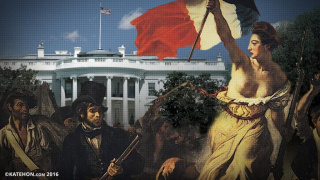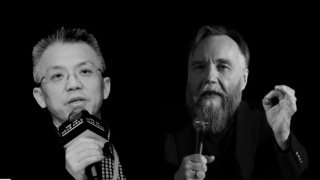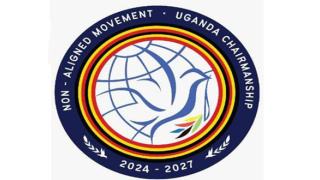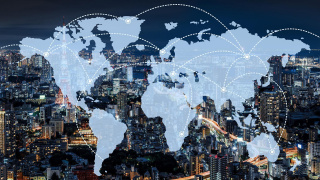West vs Russia: Struggle for African Resources
Moscow is stepping up its military presence and economic projects in Africa. The West zealously observes the appearance of Russians in its colonies, but nothing can be done about it
After the African tour of the Russian Foreign Minister Sergei Lavrov in March, Western media uneasily report that Moscow not only returns, but also conquers "new territories" in Africa. One of the latest examples is Modern Diplomacy. In it, the Italian economist and businessman Giancarlo Elia Valori says that Russia acts quite differently than Western countries.
Western countries are looking for goods and resources that are necessary for their technological and industrial survival, while Russia wants to support Africa in order to protect it from the influence of the US and the EU and use it as the basis for Russia's future development as a global, economic and strategic force ",
- writes Valori.
The expert notes that Russia and Africa account for 60% of the world's natural resources. Therefore, Moscow needs geopolitical power so that other countries can not exploit its minerals and resources of friendly African states at low prices.
Defense industry and oil and gas industry
Where does Russia's line of influence in Africa go? In the spring, Lavrov visited Angola, Zimbabwe, Mozambique, Namibia and Ethiopia as part of his tour. But it is hardly appropriate to talk about conquest here, as these countries were in close relations with the Soviet Union. It is rather about the return of lost positions.
Moscow's main trump cards are arms deliveries, accounting for about 35% of purchases of the Black Continent. In Zimbabwe, our firms invest in platinum mining, in Ethiopia and Mozambique, Rosatom has agreed on the peaceful development of the atom. The advantage of Rosatom over the same French companies is in cheaper and more reliable nuclear reactors.
Another priority area for Russian business is energy. Gazprom Neft and Rosneft intend to finance gas and oil exploration projects not only in the former communist Mozambique but also in pro-Western Sudan, Senegal, the Democratic Republic of the Congo (DRC) and Namibia. The write-off of $ 20 billion of debt by Russia should serve as an additional incentive for cooperation between local countries and domestic companies.
Syrian experience for Africa
Much greater fear of competitors prompts the appearance of the Russian military. And not somewhere, but in the Central African Republic (CAR) and DRC, which the West is still considering through the prism of colonialism. One of the reasons for concern was the anniversary of the election of CAR Faustin-Archange Touadéra, president of CAR in late March.
Then he arrived at the stadium in a security company consisting of people of European appearance in uniform without unmarked signs. Usually, Rwandan patrols, the remains of UN peacekeeping forces in the CAR, are involved in ensuring the security of such events, but this time they were replaced by other people. To dispel doubts, President Touadéra said there was a "detachment of Russian special forces to strengthen the security of the president." The Russian military not only control the presidential administration, its garage and armored vehicles, but also have unimpeded access to the movements of the Touadéra, as well as to leading figures from his government. In the presidential office, a special post was created - the "director for security", which is occupied by an officer from Russia. His Frenchmen are called the main mediator between the CARs and Russia in matters of defense and economy.
In October last year, during the visit of Touadéra in Sochi, Bangui and Moscow agreed on the rearmament of the army of the CAR. The Central African president asked 1,500 troops to be sent with small arms, grenade launchers and armored vehicles. The French are zealously watching the Russian military traveling on American "Fords", which the US delivered to the CAR in the framework of military assistance. But, unlike the French military, who provided the safety of diamond copies and uranium mines rather than people, Russians are more trustworthy. And if the latter manage to regain control over the remaining 4/5 of the country's territory, then why in the same fields as a reward to prevent a company from Russia? Meanwhile, the Western media, like the BBC television channel, are eager to blacken the Russian presence in the CAR, believing that it is aimed solely at acquired diamonds, uranium and gold, and will only escalate the conflict.
Russia attaches its military presence to the southeast of Africa. The Russian Defense Ministry and Mozambique have already signed an agreement granting the right to Russian ships to enter Mozambique's ports, refuel and service. The two countries signed an agreement in the winter on military-technical cooperation, covering the supply of arms and equipment, as well as the training of the Mozambican army.
Close military contacts are maintained with the DRC. In May this year, a convention on military cooperation was revived, providing for Russia's military presence and training of personnel from the Congo. At the negotiating stage, there is cooperation with oil-rich South Sudan and Djibouti, which is strategically important for the world's cargo turnover in the Gulf of Aden. Southern Sudan needs heavy artillery and armored vehicles, and Djibouti can open access to the seaport and airport for an appropriate fee. In the East African country are also the military bases of the United States and France, and more recently - China.
"IPhone" with African metal
In conclusion, I want to draw attention to the natural resources of the "black continent". Africa has huge reserves of important minerals, including gold, chrome, diamonds, phosphorites, uranium, copper, mercury, oil, gas and much more. It should be separately said about such a metal as tantalum. It is used to produce the most important things in the life of modern man things like telephones, video cameras, digital cameras and electronic equipment. The first three of the leading countries for the production of tantalum are Rwanda, DRC and Nigeria. Large deposits of tantalum ores are also found in Mozambique. All these countries, with the possible exception of Nigeria, are going to military-political rapprochement with Russia. Earlier this month, Lavrov visited Rwanda, where the main topics were cooperation in the field of minerals and energy. Strengthening Moscow in the DRC, Mozambique and Rwanda could become a serious claim to control the production of modern smartphones.
Russia not only returns to its traditional spheres of influence, but also plays on the "foreign field", where local governments are tired of the domination of French and Americans. Moscow is conducting an offensive simultaneously on several fronts, concluding contracts in the fields of energy, nuclear industry and the extraction of rare metals. These successes are combined with the expanding defense orders that African countries need, and sometimes Russian invitations to repeat the experience of establishing order in Syria.
